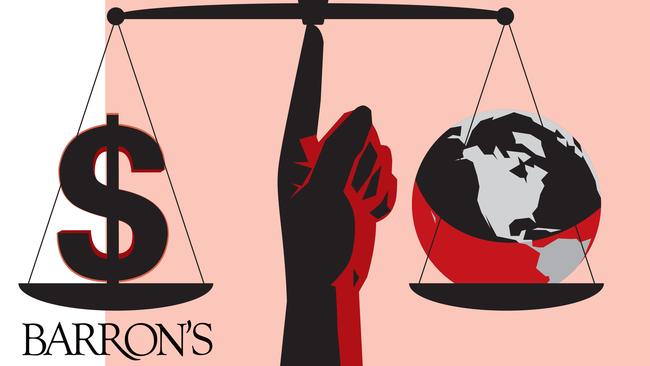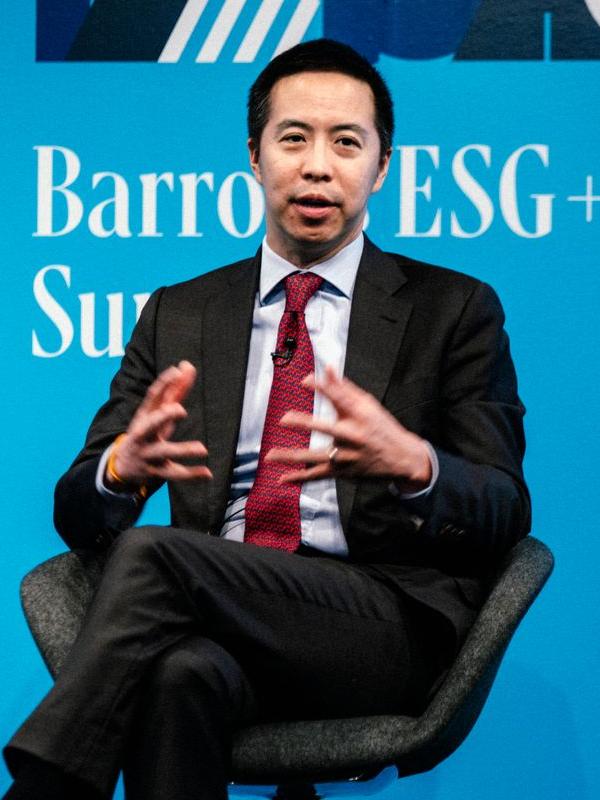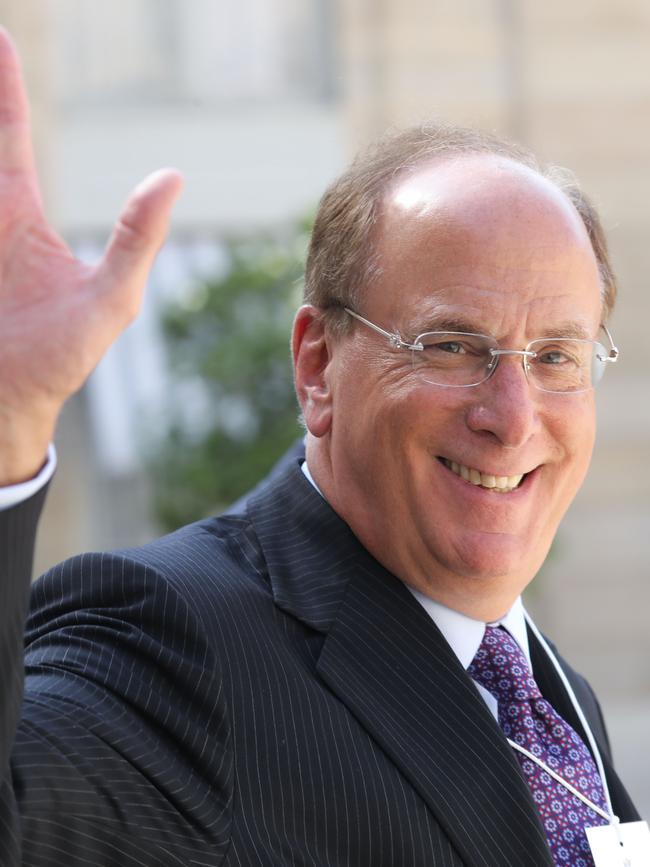Ethical investment global scorecard
Our specialist writers and Barron’s magazine examine the rise of ESG — environmental, social and governance investing.

Jonathan Stachel would love to invest his savings in companies making a positive social or environmental impact. But at 24, he doesn’t have much disposable income to invest. And while he serves on the “green committee” of his employer, Research Affiliates, he doesn’t see many funds he likes that incorporate environmental, social or governance factors, known as ESG. “It’s nothing against my desire to be in ESG funds; it’s my aversion to paying high fees for active management,” says Stachel. “I’d be all over ESG funds if there were more options.”
Stachel’s dilemma illustrates the promise and challenges of values-based investing. While ESG has gone mainstream in the institutional asset-management world, it has barely dented the retail fund industry of individual investors. Mutual and exchange-traded funds that reference ESG in their prospectus documents held just $US161 billion in assets at the end of 2018, according to Morningstar, a sliver of the $US22.1 trillion in total US fund assets. The ESG asset figure had risen to $525 billion by June, as more fund companies said they may consider ESG metrics. Figures are rising as new funds and ETFs come out. Demand appears strong, especially among women and the millennial generation. But for ESG to go mainstream, it will have to overcome obstacles — including confusion about what it means and whether it’s compatible with the goals of most advisers and investors: to maximise returns.
“ESG is so hard to define — people can’t even articulate what they’re trying to achieve,” says Joshua Miller, an investment strategist with CIBC Private Wealth Management. At a presentation for clients in February, he says, investors saw data showing that companies scoring highly on ESG criteria tended to outperform. “I didn’t find anyone saying it’s bunk,” he says. “But a lot of people said, ‘We need more convincing.’”
More: ESG — what it really means
Sustainable investing has become far more sophisticated in recent years. Where once “socially responsible” investors simply screened out “sin stocks” such as those linked to tobacco or guns, they now look for companies whose sustainable practices have a material benefit for the bottom line — a manufacturer, say, that boosts margins by slashing energy use. Asset managers are changing the way they evaluate stocks and bonds to reflect the risks to companies that ignore such concerns. And some are doing it more quietly than others — Pimco, for instance.
Governments also are taking an active role in ESG, particularly in Europe. Managers of large asset pools will soon be required to screen for sustainability across the European Union, and disclosure requirements are ramping up. The 2015 Paris Climate Agreement includes a commitment to make “financial flows consistent” with a lower-carbon world and sustainable development. That is driving both divestment from and asset flows into certain industries. A case in point: Norway’s sovereign wealth fund, with more than $US1 trillion in assets, was ordered by the Norwegian parliament to divest its holdings of more than $US13 billion in fossil-fuel companies and move $20 billion into renewable energy (even though Norway’s oil production was the source of its wealth).
ESG is also expanding in parts of Asia, notably Japan, where it grew from 3.4 per cent of managed assets in 2016 to 18.3 per cent in 2018, according to the Global Sustainable Investment Alliance. In the United States, state pension plans such as California’s Calpers have taken a lead in ESG, and it has become commonplace among foundations, university endowments and public pension plans. ESG screening has become “table stakes” to win large investment accounts in Europe, says Jessica Huang, head of strategy and innovation for BlackRock Sustainable Investing. “It has become a necessary skill set that all asset managers must have.”
‘To stay competitive, asset managers must look like good corporate citizens’
All of this is feeding a “virtuous cycle of demand” for ESG products, according to a recent report from Goldman Sachs.
To stay competitive, asset managers must look like good corporate citizens.
“We look at it from both a risk and opportunity perspective,” says Andrew Lee, UBS Wealth Management Americas’ top strategist for sustainable and impact investing. The firm recently surveyed 600 large institutional investors and found that 80 per cent saw “a material risk in not integrating ESG factors”, and 55 per cent believed that ESG would improve their investment results. “There are so many examples where sustainability issues are relevant to the bottom-line performance of companies,” Lee says.

How much of this is green window dressing? By some estimates, ESG appears to be almost everywhere. Firms controlling almost $US90 trillion in global assets have signed on to a United Nations–backed Principles for Responsible Investment pledge to disclose climate risk and other ESG considerations. Actual ESG integration has penetrated about 20per cent of those assets, according to Goldman. But the numbers are likely to rise due to requirements for more disclosures and a commitment to cover at least 50 per cent of a firm’s assets by 2020 to remain a signatory.
Jonathan Bailey, head of ESG investing at Neuberger Berman, says 60 per cent of the firm’s $323 billion in assets is managed with ESG considerations, up from 30 per cent three years ago. He says the goal is to cover 100 per cent: “It’s just good investing.”
Yet the notion that trillions of dollars are being managed with ESG considerations raised questions. How much of it involves rigorous scrubbing of corporate behaviour to find best-in-class investments? How is it different from decades-old practices of weeding out companies with bad governance or shoddy labour practices? And how much of it is a superficial gloss to win over large asset pools and appease government regulators?
One challenge is figuring out what should qualify as an ESG asset. According to the non-profit group US SIF, $US11.6 trillion in US assets is managed with an element of ESG screening, up by 44 per cent since 2016.
Even advocates of ESG investing say that asset estimates in the trillions look excessive. “The US SIF numbers are very inflated,” says Huang. “It’s easy to have a strategy where you screen out tobacco or some other industry and tag it as ESG.” Simply avoiding manufacturers of cluster bombs can get a firm’s assets counted, even though no US weapons makers currently produce cluster munitions (following years of activist pressure).
Regulators in Europe appear to recognise that ESG needs stricter definitions if it’s to remain credible. They’re instituting a classification and labelling system for sustainable investments or products, such as “green bonds”. No such labelling appears to be coming from US regulators, allowing for wide disparity about what counts as an ESG asset or strategy.
‘Are fund companies trying to help the planet, or simply adopting the mainstream view that climate change poses an investment risk?’
Another tricky part of values-based investing is that it’s hard to differentiate it from standard activism for better corporate governance. BlackRock, State Street and Vanguard, for instance, all supported climate proposals at Exxon Mobil and Occidental Petroleum to disclose their plans to comply with the Paris climate accord targets. US SIF called the fund companies’ support a “watershed moment” because it was a departure from past proxy voting policies.
Are fund companies trying to help the planet, or simply adopting the mainstream view that climate change poses an investment risk? And does their motivation matter? It would be foolhardy to vote against more disclosure. “What we want is to make sure the marketplace is pricing in any risk that’s out there,” says Matt Brancato, global head of Vanguard’s portfolio review department. “We engage with companies to make sure they’re disclosing risks that we think are pertinent.”
Despite the momentum in the institutional world, ESG is not taking off with retail investors.
Vanguard has signed on to the PRI pledge and supports climate-friendly shareholder proxies and other good-governance practices. Its largest ESG fund is the $US5.4 billion Vanguard FTSE Social Index, launched in May 2000. Vanguard came out with two ESG ETFs in 2018 and introduced its first actively managed ESG mutual fund in May. Yet its ESG strategies amount to $US10 billion overall, a mere 0.02 per cent of the $US5.4 trillion that it oversees. “When you look at any new trend, there’s a period of time it takes to gain hold,” Brancato says. Vanguard’s goal, he adds, is to eventually allow investors to build a “fully diversified portfolio” of equity and fixed-income ESG investments.
ESG is faring better at BlackRock, also a PRI signatory, partly because CEO Larry Fink views it as a source of asset growth and has been outspoken in urging companies to behave more responsibly. The firm has started providing ESG scores, including measures of carbon intensity, across its iShares lineup of exchange-traded funds. BlackRock sponsors 14 iShares sustainable ETFs in the US, including a recently launched “global green bond” fund and an “ESG leaders” ETF that came out in May with $US800 million in seed money from Finland’s largest pension fund.

Yet even at BlackRock, ESG remains a niche product. Out of $US6.5 trillion in assets under management, less than 1 per cent, or $US60 billion, is in “ESG, thematic and impact strategies”, says Huang. BlackRock’s largest ESG ETF, (DSI), holds $US1.4billion in assets, about the same as the ETF (USRT). Says Huang: “We’re not touting every strategy as part of our sustainable investing platform.”
Financial advisers are the gatekeepers for many investors, and some advisers say they would lose out on new business if not for ESG. Peter Rohr, an adviser with Merrill Lynch in Philadelphia who oversees $US4.4 billion, says ESG investors make up 80 per cent of new accounts. He sees strong demand coming from millennials who are inheriting wealth from their parents. “Millennials want to be more active and participatory with their investments. It’s in their DNA,” he says. Moreover, he now has the analytic tools and investment products to make a case for ESG as an enhancement to returns.
“There used to be a performance penalty five or 10 years ago,” he says. “That is no longer the case.”
Yet most of Rohr’s clients are rich investors, some of whom oversee foundation assets or large sums of inherited wealth. They require “investment policy statements” that outline their objectives, and they’re willing to pay for sophisticated strategies that incorporate ESG principles.
Most millennials don’t have that kind of cash, and the generational wealth transfer is not happening overnight. “Not every millennial is graduating from college with a $10 million cheque from her grandfather,” says John Tennaro, a senior adviser and head of sustainable investing at CIBC Private Wealth Management. “The wealth is still in the boomer generation and they’ve had 40 years of being told not to sacrifice returns.”
Tennaro is both an advocate and a critic of ESG. He sees plenty of questionable marketing in the space, and he’s sceptical of the hype. “You can qualify as an ESG fund by not doing very much. The bar has been lowered to get more assets in the pool,” he says. The fund industry favours packaged products, he adds, and they don’t necessarily capture the intricacies of ESG.
“Responsible” investing has long had to fight the perception that it lowers performance. There’s no standard method in how it’s practised or benchmarked. Data mining (isolating time periods to support your objective) may be rampant. And fund results are mixed. The Vanguard FTSE Social Index has returned an annualised 4.3 per cent since its 2000 inception, compared with 5.5 per cent for the S&P 500 index.
‘Growing evidence of ESG’s impact on the corporate bottom line and utility as a risk-management tool makes it tougher to argue against the economic rationale’
Index provider MSCI, which sells ESG ratings tools and indexes, also shows mixed results. The MSCI All-Country World ESG Leaders index has slightly outpaced its non-ESG counterpart over the past decade, but the US ESG index has trailed the domestic index by the same margin.
Some active managers’ performance has edged past the indexes’. And new academic research indicates that focusing on material ESG issues may be the key to outperformance. According to Robert Eccles, a visiting professor at the University of Oxford’s business school, and Svetlana Klimenko, a financial-management specialist at the World Bank: “Firms with good ratings on material sustainability issues significantly outperform firms with poor ratings on those issues.”
Even so, it’s tricky to isolate ESG as the winning factor in a stock. Everyone may agree that a low carbon footprint or diversity in the workforce is positive for a company and society at large. But do those stocks outperform? Not necessarily. Says Katrina Sherrerd, CEO of Research Affiliates: “The research on whether workplace diversity leads to better investment performance is rather weak.” Investors may overpay for companies scoring well on ESG metrics, she adds, faring worse than if they’d stuck with cheap value stocks. “We don’t believe there’s a clear investment angle to ESG,” she says (though Research Affiliates has developed indexes in this area).
With the jury still out on ESG’s performance record, investors and advisers may need more convincing that doing good as a citizen investor translates to doing well as an asset accumulator. It’s a form of active management fighting for assets in an era of low-cost index funds and computer-driven algorithmic strategies. And the industry will have to clear up misconceptions about what ESG investing is — even the acronym elicits blank stares or hostility from some advisers.
Indeed, while ESG is now viewed as an economic filter in the institutional world, it’s still often seen through a non-economic lens by advisers and individuals — its intent is some greater social or environmental good.
One clear pathway for ESG to expand would be through savings plans, such as 401(k)s. According to surveys by Natixis Investment Managers, 75 per cent of savers say they want socially responsible investment choices, including 79 per cent of women and 77 per cent of millennials. But only 5 per cent of 401(k)s offered a dedicated ESG fund in 2018.
Legal hurdles abound. Under US Department of Labor guidelines, if two funds are “economically similar”, ESG can be the tie-breaking factor in plans’ selection process, says Joshua Lichtenstein, a partner with law firm Ropes & Gray. But that’s a tall hurdle for plan fiduciaries. The DOL could challenge them to prove that they didn’t tip the scale in favour of ESG for non-economic reasons, and such a challenge could expose a plan to class-action suits, especially if an ESG fund underperforms.
New guidelines issued by the Trump administration also might be having a “chilling effect”, says Lichtenstein. The guidelines urge plans to be “cautious” about attributing economic factors to ESG. “It’s basically warning plans not to put their thumb on the scale,” he says.
None of these issues is insurmountable. Growing evidence of ESG’s impact on the corporate bottom line and utility as a risk-management tool makes it tougher to argue against the economic rationale. And a generational shift in assets may eventually swing the pendulum to the mainstream. Presumably, distrust will fade with better performance, more sophisticated analytics tools, and strategies that don’t have to jump through hoops of acronyms to make intuitive sense.
“I feel like a financial missionary now, but this will eventually go down-market,” predicts Rohr, the Merrill Lynch adviser in Philadelphia. “It’s only a matter of time.”
More: Values and valuation go hand-in-hand | Locals lead the way on ESG



To join the conversation, please log in. Don't have an account? Register
Join the conversation, you are commenting as Logout